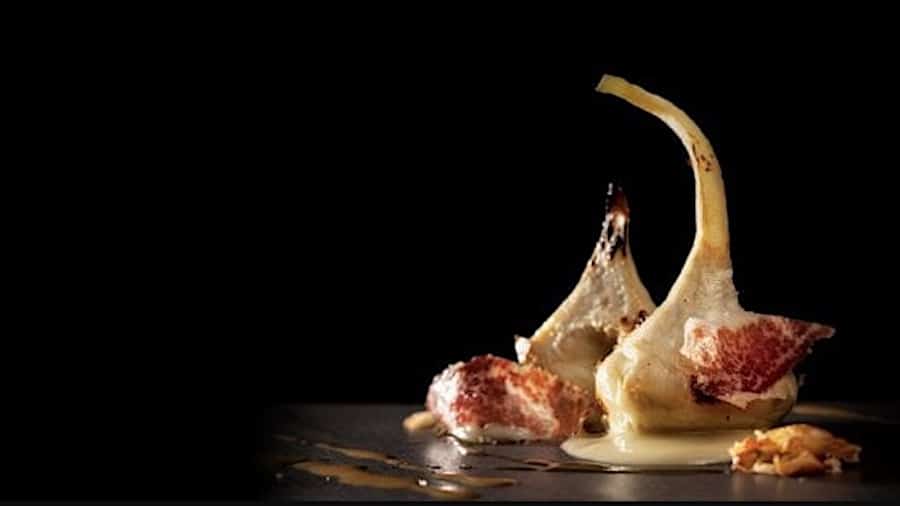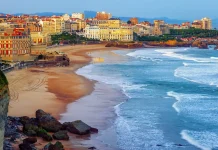This article was translated by John R. Bopp
Luca Iaccarino is a journalist who’s written an article about Basque cuisine for the Italian daily La Repubblica. And he’s committed the most dangerous mistake a communications expert can make: writing about what he doesn’t know.
We’re not referring to culinary matters, in which he states mainly things we’ve already heard. Namely, that Basque cuisine is a great cuisine. We’re happy he also liked and enjoyed it. We hope he’ll return and complete his journey along the part of the Basque coast he didn’t cover this time and go from San Sebastian up to Bayonne, and also dig deeper in our nation’s cuisine, traveling inland.
“So, did he get intoxicated or not?” the reader will be wondering. Well yes, but not by anything he ate, but rather by something he read. Only a severe case of “Patriatits” intoxication can explain that the start of his article discussing the Basques and their cuisine compares us to the Borgias, evil people who occasionally helped finance beautiful creations. We know this, because the source of his intoxication is revealed when he recommends reading Fernando Aramburu’s “Patria” to “get better oriented” about what happened in the Basque Country.
Basing one’s thoughts on the “Basque matter” on that book is similar to trying to understand Italian masculinity based on the joke that says that “all Italian cars have beautiful designs, but leak oil”. That is to say, it’s supremely stupid.
“Patria” doesn’t reflect the reality of our Country in the last 50 years, nor the reality of the ETA, nor that of Basque nationalism (which is quite removed from the ETA, mind), nor Spanish nationalism. This book reflects the traumas, pre-conceptions, interior demons, and desire to simplify things that are natural to a person born in our country, but he’s lived in Germany for over 30 years.
As we said in an earlier article on this matter, all it is is a little novel that breaks the world down into “good guys” and “bad guys”, all painted in broad strokes. We try not to talk too much about him, in order to not belabor our feelings about his work and opinions, but there are times, like these, when we have no choice.
We don’t doubt that Mr. Iaccarino is capable of distinguishing between a good dish and a bad one, but as regards his ability as a social analyst of the Basques, he’s still in diapers.
If an Italian, or any other person not living in our country, wants to learn about the terrible disgrace that befell our country for over 40 years, first they must understand that that situation is but the consequence of the previous terrible 40 years of the Francoist dictatorship, the war we suffered before that, as well as the dictatorship of Primo de Rivera, and three Carlist wars. Just to get your bearings on the “playing field”.
Please don’t be simple, Mr. Iaccarino. Please understand. Italy is a complex country, built hard, that has suffered dictatorships and foreign occupations. Do you really think that someone who knows nothing of Italy should try to comprehend it by reading a tall tale in which all Italians were either mafiosos or victims of the mafia? Or another which led readers to believe that all Italians were, or still are, faitful followers of Mussolini? Let’s get serious.
Regarding his gastro-tour, we’re glad he enjoyed it. And again, we invite him to come back and write another article for La Repubblica for which he does his homework, rather than making these comments that are so unkind and off-the-mark.
La Repubblica – 9/10/2019 – Italy
Pintxos e sidro: movida golosa nei Paesi Baschi
Non c’è luogo in cui l’alta cucina e quella popolare s’intreccino e dialoghino come nei Paesi Baschi. I cento chilometri costieri più buoni del mondo – quelli tra San Sebastian e Bilbao – alternano ristoranti tristellati e bar di pintxos (bocconi in stile tapas), locali d’avanguardia e succulenti asador ( le bracerie). I grandi chef fanno serata nelle sidrerie, gli osti insegnano loro a cuocere le bistecche sui carboni, senza separazione di casta tra top e pop.
(Follow) (Automatic translation)
Last Updated on Dec 20, 2020 by About Basque Country





